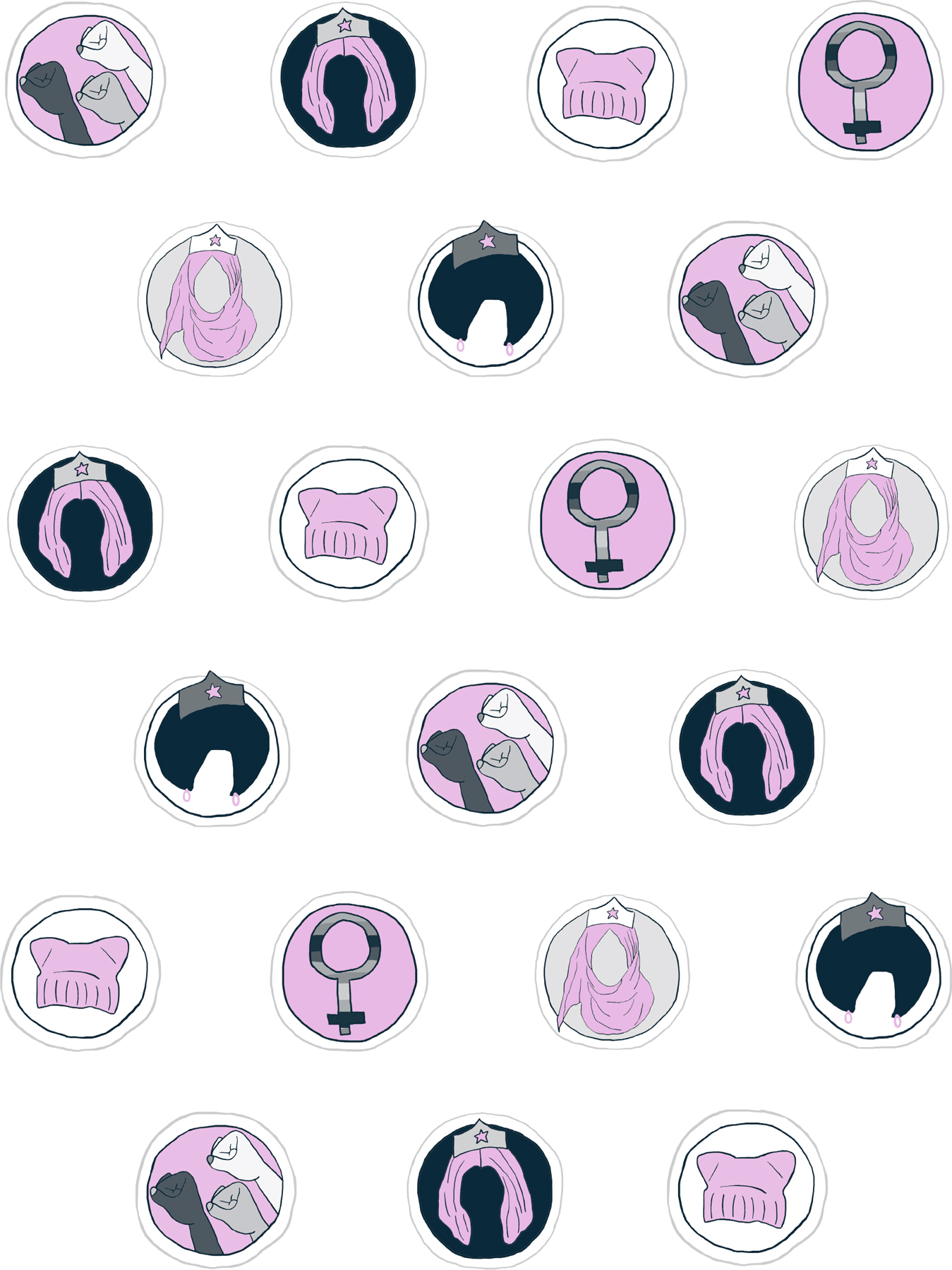HOW TO STOP WATCHING NETFLIX, GET OFF YOUR COUCH, AND

We have to do something.”
This sentence played through my head thousands of times on November 9, 2016.
I had been dragged into the HuffPost office that morning by my work wife, Jess, on about three and a half hours of restless sleep. The night before, my team and I had left the Javits Center (the glass-ceilinged building where Hillary Clinton’s election night watch party was taking place) after one of us broke out in hives, one of us broke out in a heat rash, and one of us (read: me) found herself on her knees outside trying to stave off a panic attack as one of her favorite actresses chain-smoked mere feet away.
We ended up around the corner from Javits and spent the remainder of the night into the early-morning hours speaking to the men and women who were leaving Clinton’s public block party. They streamed out in groups, clutching one another and the American flags that had been given out during a more hopeful hour, some rolled up tightly and some gripped in fists. We were all just trying to hold on.
I gave up on even that base-level goal around 1:30 A.M. My credit card refused to work as I tried to pay for my taxi ride back to Brooklyn. I was exhausted after a long, unexpected night’s work. My heart hurt—I was grief-stricken, and in that moment it felt like someone had died. More than that, it felt like my country—or at least the tenuous, idealized vision I had of it—had died. As I swiped my card for the fifth and then sixth time, I broke. I burst into ragged sobs, to the point where the poor driver had to pull over and help me work the credit card machine.
“I’m scared too,” he told me as he helped me out of the taxi and onto the curb outside my apartment.
The next day felt like a blur—partly because I had eventually taken a sleeping pill to force myself to get a bit of shut-eye, and partly because it seemed like everyone I knew, regardless of political worldview, was trying to figure out what came next. We would not have our first woman president. We would instead have a president who had campaigned on an openly anti-immigrant, anti-Muslim, anti-woman platform.
I wrote like a motherfucker (as Cheryl Strayed would say) that day, because work has always helped me process my most ragged emotions. By the afternoon I was gripped by an overwhelming need to do more.
“In dire need of the wonderful women in my life. Feeling thankful they exist,” I emailed my friend Lindsey.
She responded quickly with a post-work plan: “Let’s go somewhere dark. Quiet. And where it’s always four A.M.”
And so we did just that, recruiting Jess and our friend Julie to come along.
Out of that night of brainstorming came a mission. We were going to create a space for empowerment and action on a day when many Americans would need it: Inauguration Day.
* * *
While I was desperately trying not to throw up (and trying to write a story) in a giant, fluorescent-lit room at the Javits Center, thirty-three-year-old Haley Stevens was upstairs trying to maintain a sense of what she termed “optimistic denial.”
Haley, who worked for Hillary Clinton’s 2008 presidential campaign and subsequently took a post in the Obama administration, flew into New York City from southeastern Michigan to attend what she assumed would be Clinton’s victory party with one of her best friends from college. Instead, she wound up in a crowded room trying to be upbeat while she fielded texts from friends and family all over the country and watched Clinton supporters and staffers burst into tears.
She stayed at the Javits Center until the wee hours, when Clinton’s campaign chairman, John Podesta, finally came out and announced that Clinton would not be addressing her supporters that night. As someone who had volunteered extensively for the campaign and knew many of Clinton’s staffers, Haley ended up going out with them until six in the morning, cracking jokes and trying to keep everyone’s energy up. And she found herself saying out loud that she might run for office.
“At the election night party I was hyped, because I was really furious,” she told me. “I remember saying, ‘I think I might run for something. I might run.’ I just was like, ‘The only way I can respond to this is by stepping up.’”
So she stepped up. Haley began fund-raising for a congressional run in Michigan’s Eleventh District, located just northwest of Detroit, encompassing parts of Wayne and Oakland Counties. She hopes to channel her anger and energy into making a difference in her home state, a place she knows and cares about deeply.
And Haley is far from alone.
Hillary Clinton’s loss, and the rise of Donald Trump—a political figure so diametrically opposed to Clinton and women’s rights as a whole—motivated thousands of women to consider elected office.
Within a month after the election, She Should Run, a nonpartisan organization dedicated to “expanding the talent pool of future elected female leaders,” heard from more than forty-five hundred women across the political spectrum.1 By mid-February, that number had risen to nearly thirteen thousand.
She Should Run founder and CEO Erin Loos Cutraro summed up what she was seeing in the months following Trump’s election and inauguration: “There’s an air of activism right now—and it’s having a snowball effect.”
Rachel Thomas, former communications director at EMILY’s List, a political action committee (PAC) that works to elect pro-choice Democratic women across the nation, called the drive of women to run for office since President Trump took office “unprecedented.”
By mid-April 2017, EMILY’s List had heard from more than eleven thousand women.2 In the previous twenty-two months, they’d heard from nine hundred.
“Women run for office because they want to fix something or they’re mad as hell about something,” said Rachel. “And [the presidential] election brought out women who might feel one way, or might feel both ways, about what they’re seeing in Washington and their state legislatures across the country.”
Being “mad as hell” can be a great tool for motivating yourself to do that fixing. And that’s because anger—righteous, energizing, directed anger—is a powerful force.
* * *
But, of course, it can’t end at anger. That anger needs to translate into action.
My post-election anger, coupled with the post-election anger of a handful of other women, turned into a summit on January 21, 2017. Through our event Watch Us Run, my friends (who also happen to be my colleagues) and I turned manic energy and fear into something light and tangible.
Of course, before Watch Us Run could be an actual thing, we had to do a hell of a lot of work. My co-organizers and I were lucky enough to work for name-brand media companies, which meant we had platforms and a decent base of contacts, but none of us had ever planned a summit from the ground up. (The biggest event I had planned prior to this one was probably a staff trip for my summer camp. So I basically had no clue what I was doing.)
Our goals were simple: attract interesting speakers from either side of the political aisle, figure out a venue in a location that would make sense for an event being held on Inauguration Day, promote the event to attract enough people to attend, and somehow fund the whole thing. Okay, so not actually simple at all.
My friends and I started by going back to our bosses and their bosses and asking if HuffPost and Bustle would be willing to put their names behind our event. We brought in more of our colleagues—women in leadership positions at both brands across editorial, communications, and marketing. We decided we would be scrappy, and that we weren’t above begging for money to get this thing off the ground. A consultant for Bustle happened to be a member of the National Press Club, and by some small miracle they still had rooms available for rent on Inauguration Day. The space was affordable and downtown in Washington, DC, so we jumped at the chance to secure it, assuming we’d figure out the rest as we went.
And somehow we did!
We sent emails to every high-profile, politically engaged woman we had contact information for. We crafted pitches for marketing purposes. We reached out to feminist brands that might be interested in donating merchandise for the gift bags we gave our speakers, all of whom agreed to participate for free. We planned a run of the show, centered on the themes of grassroots activism, art as resistance, and running for elected office. HuffPost’s parent company, AOL, was kind enough to assign someone on the events team to help us figure out logistics with the venue. (Her name is Sara, and we referred to her as “literal angel” for that whole month. She performed miracles, such as getting costs shaved down so that we didn’t blow through our meager budget and saving us from having the event in a room with very little airflow and far too much backlighting.)
It all began to feel very real when Jess, HuffPost’s then director of communications, Lena, and I wound up on a phone call with Ashley Judd, actress and activist extraordinaire. Despite being under the weather, Ashley was interested in being a keynote speaker at our summit. And unlike many celebrities who only communicate through their publicists, she wanted to be on the phone with us to really talk through her involvement. After we hung up the phone, the three of us did a silent happy dance in a huddle room. Maybe this thing would actually make some sort of small impact after all.
The day before Donald Trump was sworn in as president of the United States, five of us spent hours doing a walk-through of the event space for Watch Us Run, reviewing logistics and stuffing gift bags in a tiny hallway. It was tedious work, but it was also invigorating. We were creating something—in the place where they would be holding the #MAGA DeploraBall that night, no less—and we were working rather than wallowing. It felt damn good.
On Inauguration Day, 400 men and women packed into the National Press Club in DC. We had panels on how to run for office, the role of art in resistance, and grassroots activism. Michael Moore led us in a group primal scream, and Ashley Judd and Representative Barbara Lee led affirmations. We streamed all of it on Facebook Live, and 1.5 million people across the country tuned in.
“I will feel all my feelings,” said Ashley Judd, wearing a pink pussy hat, as the audience repeated her words back to her.

After the day wrapped up, a man I had never met approached me. Lindsey and I had been emceeing the event, so we had hardly paused to speak to anyone.
“Thank you,” he told me earnestly as he gave me a warm hug. “You saved my day.”
Our small summit wouldn’t change the world or the country, but it did change a few people’s days. And that was a start.
Like me and like Haley, so many women across the country—and the world—felt compelled in the wake of a confusing and divisive election to do more. And if you’re reading this book, you probably want to do more too.
* * *
SIMPLE WAYS TO JOIN THE RESISTANCE TODAY (OR TOMORROW, BECAUSE SOMETIMES TODAY IS REALLY FREAKING EXHAUSTING)
1. CALL, FAX, EMAIL, AND CONFRONT YOUR REPS. Set an alarm on your phone, find a buddy to hold you accountable, and just do it. Be reasonable about the commitment—can you find ten minutes every day? Every other day? Make a plan and stick to it. When your senator or congressperson has a town hall, show up. If they haven’t scheduled a town hall, ask them to. When people express their concerns in large numbers, our elected representatives have to listen.
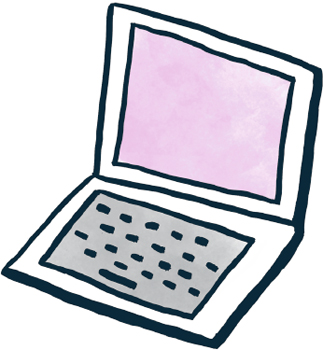
2. RUN FOR OFFICE—AND/OR ENCOURAGE THE WOMEN IN YOUR LIFE TO. Okay, so this one isn’t exactly simple, and you don’t have to do it right away, but it’s deeply important. The more women who run for office, the more women who win. And the more women who win, the more seats at the table we have.
If you’re interested in exploring a run for office at some point in the future, get in touch with organizations such as She Should Run, EMILY’s List, Run for Something, Ignite, Sister District, and Emerge. And if there’s a woman you know who you think would make a great candidate, nominate her through She Should Run’s Ask a Woman to Run for Office program.
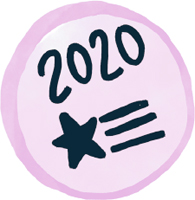
3. DONATE WHAT YOU CAN. There are already organizations out there that are dedicated to nearly any cause you can think of. And the number one thing most of them need right now? Money. It may sound unglamorous or lazy, but truly, these groups—most of whom have been doing this work for years—need to pay their employees, purchase materials, and keep their doors open. Your donations, no matter how small, can make a difference. For more info on this, see Chapter 11.
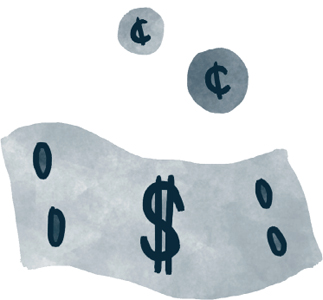
4. VOLUNTEER YOUR TIME. As Mother of the Movement Lucy McBath told me: “Start volunteering your time and your effort. That’s how you grow into an activist or a movement. That’s all it simply is, is that being mad enough and angry enough about something to make a difference.”
5. START HAVING TOUGH CONVERSATIONS WITH PEOPLE YOU MIGHT DISAGREE WITH—OFFLINE. Absolutely don’t get on Twitter and start spamming your trolls with links to op-eds about health care and immigration—or tweets that cleverly tell them to fuck off. Not only is that unfulfilling (except maybe in the moment), but it’s a waste of time and emotional energy. What you absolutely should do is start wading into loving, empathetic chats with friends and family members who come at a given issue from a different vantage point than you do.
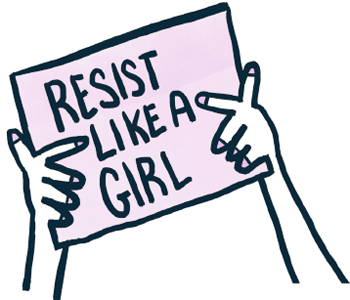
“One of the negative effects of social media is that we don’t have the deep recurring conversations that we need to have to move people forward in their awareness and in their empathy and in their shared humanity,” Women’s March national cochair Bob Bland told me. “Twitter is the most political [social media platform], and it’s also the most cutthroat platform, because it allows you the shortest amount of time to make a statement. And so in one hundred forty characters you’re going to condense whatever it is you’re trying to express into the most potent statement you can. That can be beautiful if it’s love, but all too often it’s hate or fear or cynicism.”
She also pointed out the obvious: that people speak to one another very differently on Twitter or Facebook or Snapchat than they do in real life. To encourage people to talk face-to-face with people they already know, the Women’s March organizers launched an initiative called Daring Discussions,3 along with a tool kit to help you start such conversations, which can be found at daringdiscussions.com. The tool kit includes guidelines—“ground yourself in love,” “be aware of the privilege you hold,” “be unconditionally accepting”—as well as sample questions: “What motivated you to participate in this discussion?” “What are you most hopeful about when you think about the future?” “What do you want to know but have been afraid to ask about the other side of this topic?”
These empathetic conversations only work when both people involved are open to having them. Don’t go in looking to definitively change anyone’s mind. Go in looking for understanding. You may end up finding common ground you never knew existed.
6. LISTEN TO THE WOMEN WHO ARE ALREADY LEADING THE RESISTANCE, ESPECIALLY WOMEN OF COLOR. There’s an instinct among a lot of young women to want to start something when they experience a political awakening. And it’s understandable—you want to be as involved as possible! You want to feel ownership over this energy and the impact you’d like to make! But there are veterans in the trenches who have been fighting this fight for years—seek them out and follow them because they will know where your energy would be best applied.
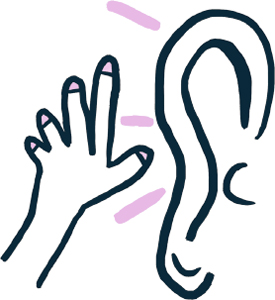
Toward the end of November I accompanied my friend Liz to an organizing meeting at an acquaintance’s Brooklyn townhouse. There were activists of all different areas of expertise and backgrounds in attendance. But something that really struck me was when a young black woman stood up and addressed her white sisters in the room. She asked us to put ourselves on the front lines of the resistance so that women of color didn’t always have to be there, standing alone.
7. SHOW UP, SHOW UP, SHOW UP—EVEN WHEN IT’S NOT DIRECTLY ABOUT YOU. Your body is your greatest tool and weapon. Deploy it wisely, to physically be there for the people and causes you care about. If you’re a white woman, this is doubly important.
We all tend to get the most fired up when our personal rights are impacted. After all, empathy takes work. But the fight for human rights is ultimately one fight. If we leave people to fend only for themselves, we will all ultimately fail.
